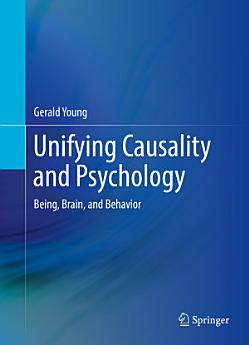Unifying Causality and Psychology: Being, Brain, and Behavior
About this ebook
Among the topics covered:
Models and systems of causality of behavior.
Nature and nurture: evolution and complexities.
Early adversity, fetal programming, and getting under the skin.
Free will in psychotherapy: helping people believe.
Causality in psychological injury and law: basics and critics.
A Neo-Piagetian/Neo-Eriksonian 25-step (sub)stage model.
Unifying Causality and Psychology appeals to the disciplines of psychology, psychiatry, epidemiology, philosophy, neuroscience, genetics, law, the social sciences and humanistic fields, in general, and other mental health fields. Its level of writing makes it appropriate for graduate courses, as well as researchers and practitioners.
About the author
Gerald Young, Ph.D., is an Associate Professor at Glendon College, York University. Dr. Young founded and is the Editor-in-Chief of the journal of Psychological Injury and Law. Dr. Young also founded and is President of the Association for Scientific Advancement in Psychological Injury and Law. Dr. Young recently published a book that covers all areas of psychological injury and law, focusing on malingering, see Malingering, Feigning, and Response Bias in Psychiatric/ Psychological Injury: Implications for Practice and Court (2014). Dr. Young has published other works in the area, see Causality of Psychological Injury: Presenting Evidence in Court (2007). For Dr. Young’s research in child development, see Development and Causality: Neo-Piagetian Perspectives (2011); see also Dr. Young’s most recent trade book You Can Rejoin Joy: Blogging for Today’s Psychology (2012). Dr. Young has published multiple journal articles, specifically on psychological injury, law, causality, PTSD, and pain. Dr.Young may be reached at [email protected].






